 W
WThe Caelifera are a suborder of orthopteran insects. They include the grasshoppers and grasshopper-like insects, as well as other superfamilies classified with them: the ground-hoppers (Tetrigoidea) and pygmy mole crickets (Tridactyloidea). The latter should not be confused with the mole crickets (Gryllotalpidae), which belong to the other Orthopteran sub-order Ensifera.
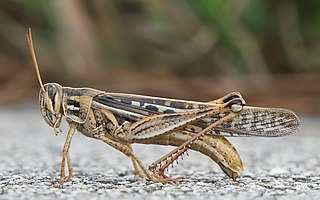 W
WGrasshoppers are a group of insects belonging to the suborder Caelifera. They are among what is probably the most ancient living group of chewing herbivorous insects, dating back to the early Triassic around 250 million years ago.
 W
WAcrididea including the Acridomorpha is an infraorder of insects that describe the grasshoppers and ground-hoppers. It contains a large majority of species in the suborder Caelifera and the taxon Acridomorpha may also be used, which excludes the Tetrigoidea. Both names are derived from older texts, such as Imms, which placed the "short-horned grasshoppers" and locusts at the family level (Acrididae). The study of grasshopper species is called acridology.
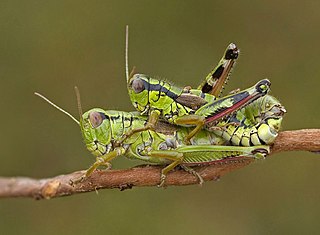 W
WAcridoidea is the largest superfamily of grasshoppers in the order Orthoptera with species found on every continent except Antarctica.
 W
WGrasshoppers are a group of insects belonging to the suborder Caelifera. They are among what is probably the most ancient living group of chewing herbivorous insects, dating back to the early Triassic around 250 million years ago.
 W
WAustracris is a genus of Orthoptera: Caeliferan insect in the family Acrididae: subfamily Cyrtacanthacridinae. It includes an Australian pest, the spur-throated locust.
 W
WCeracris is a genus of grasshoppers in the family Acrididae, subfamily Oedipodinae, found in tropical Asia. C. kiangsu is the yellow-spined bamboo locust which infests Indo-China and southern China.
 W
WChorotypinae is a subfamily of grasshoppers in the family Chorotypidae. There are currently more than 30 described species in Chorotypinae, found in Africa and Asia
 W
WThe Coptacrinae are a subfamily of Acrididae in the Orthoptera: Caelifera. Species can be found in Africa and Asia.
 W
WSandgropers are wholly subterranean apterous insects of the family Cylindrachetidae that may grow up to 7 cm (3 in) long. Three genera are currently recognised: Cylindracheta, Cylindraustralia and Cylindroryctes. Like many subterranean animals, little is known about their habits and diet, but Western Australian farmers have blamed them for substantial crop losses.
 W
WDiscotettix belzebuth is a groundhopper found in western Malesia, belonging to the subfamily Scelimeninae; it is the type species of its genus.
 W
WEpisactidae is a family of grasshoppers in the order Orthoptera. There are about 19 genera and more than 60 described species in Episactidae, found in Central and South America, China, and Madagascar.
 W
WThe Erianthinae are a subfamily of Asian grasshoppers in the family Chorotypidae and based on the type genus Erianthus. There are currently 12 genera and more than 40 described species recorded from southern China, Japan, Indo-China and Malesia.
 W
WEumastacoidea is a superfamily within the order Orthoptera, suborder Caelifera. The family has a mainly tropical distribution and have sometimes been called "monkey grasshoppers".
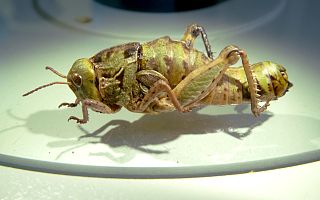 W
WEuryparyphes is a genus of grasshoppers in the family Pamphagidae. There are about 17 described species in Euryparyphes, found in southern Europe and North Africa.
 W
WThe Eyprepocnemidinae are a subfamily of Acrididae in the Orthoptera: Caelifera. Species can be found in Africa, mainland Europe and Asia.
 W
WThe Hemiacridinae are a subfamily of Acrididae in the Orthoptera: Caelifera. Species can be found in Africa, and Asia.
 W
WHieroglyphus is a genus of grasshoppers in the family Acrididae: subfamily Hemiacridinae and the tribe Hieroglyphini Bolívar, 1912. Species can be found in Africa and Asia.
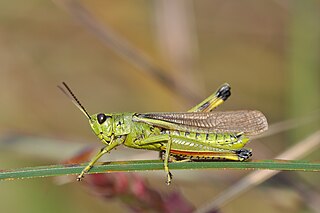 W
WThe large marsh grasshopper is a species of grasshopper belonging to the family Acrididae.
 W
WThe Lathiceridae are a family of grasshoppers, in the Orthoptera: suborder Caelifera. Species in this family can be found in southern Africa.
 W
WMorabidae is a family of grasshoppers in the order Orthoptera. There are more than 40 genera and 120 described species in Morabidae, found in Australasia.
 W
WOedaleus is a genus of grasshoppers in the family Acrididae.
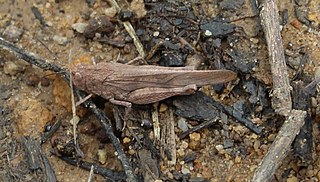 W
WThe Ommexechidae are a family of grasshoppers, in the Orthoptera: suborder Caelifera. Species in this family can be found in the Americas.
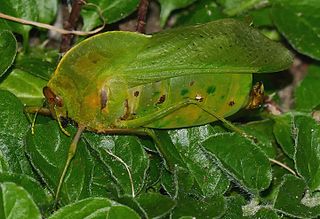 W
WThe Pneumoridae are a family of nocturnal short-horned grasshoppers in the order Orthoptera, commonly known as the bladder grasshoppers and the sole representative of the superfamily Pneumoroidea. Their centre of diversity is in southern Africa, but one species occurs as far north as South Sudan. Most adult males acquire an inflated abdomen, a specialization for amplified sound production, which is likely its primary function. Most genera display striking sexual dimorphism, and several species exhibit a dual male phenotype.
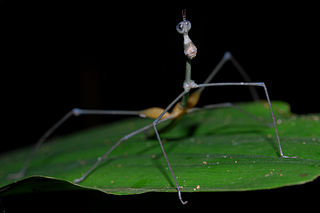 W
WProscopiinae is a subfamily of grasshoppers in the family Proscopiidae. There are more than 20 genera and 190 described species, found in South America.
 W
WPyrgomorphidae is a family of grasshoppers in the order Orthoptera; it is the only family in the superfamily Pyrgomorphoidea, with a pan-tropical distribution. Their name is probably derived from pyrgos meaning "tower": a reference to the form (morph) of the head in the type genus Pyrgomorpha and other genera.
 W
WRipipterygidae is a family of insects in the order Orthoptera. Members of the family are commonly known as mud crickets.
 W
WSphenarium purpurascens, is a grasshopper species in the genus Sphenarium found in Mexico and Guatemala.
 W
WStethophyma is a genus of grasshoppers in the family Acrididae, with species found in Europe, North America and Japan.
 W
WTetrigidae is an ancient family in the order Orthoptera, which also includes similar families such as crickets, grasshoppers, and their allies. Species within the Tetrigidae are variously called groundhoppers, pygmy grasshoppers, pygmy devils or "grouse locusts".
 W
WThe Thericleidae are a family of grasshoppers within the order Orthoptera and superfamily Eumastacoidea. They have exceptionally stubby antennae even for the Caelifera, with most species have a characteristic "horse-headed" look in profile.
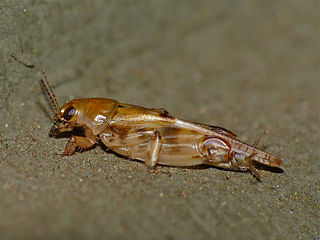 W
WThe infraorder Tridactylidea has a single extant superfamily which includes pygmy mole crickets; they are thought to represent living representatives of the most basal Caelifera: the Orthopteran suborder that includes grasshoppers.
 W
WTridactyloidea is a superfamily in the order Orthoptera. The insects are sometimes known as pygmy mole crickets but they are Caelifera and not members of the mole cricket suborder Ensifera, unlike the true mole crickets, the Gryllotalpidae. It is composed of three families that contain a total of about 50 species. Insects in this superfamily can be 4 to 9 millimeters in length and generally have short antennae and long wings. They live along the banks of bodies of water in tropical areas and are good swimmers and jumpers. Fossils of this subfamily have been found in Siberian deposits dating back to the Cretaceous.
 W
WThe Trigonopterygidae are an insect family in the Orthoptera: Caelifera found in south and south-east Asia.
 W
WThe Trigonopterygoidea are an insect superfamily in the Orthoptera: Caelifera. Sometimes described as leaf grasshoppers, American species in the Xyronotidae have also been called razor-backed bush-hoppers.
 W
WThe Tropidopolinae are a subfamily of Acrididae in the Orthoptera: Caelifera. Species can be found in Africa, southern Europe and Asia.